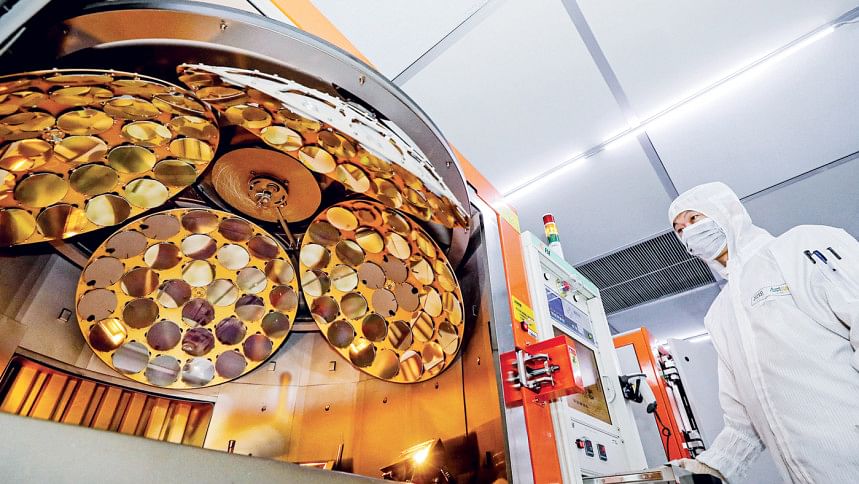Chipmaking giants face triple tariff hit

Chipmakers will feel the heat of Donald Trump's tariff rampage. The exemption of semiconductors from the US president's announced levies may not last. What's more, the blow to demand for phones and other consumer electronics will be painful for Taiwan Semiconductor Manufacturing Company, Samsung Electronics and peers. Surging costs also will disrupt their bold plans to set up factories in the US
That US imports of semiconductors are not subject to reciprocal tariffs is hardly a reprieve for the industry. Speaking on Air Force One on Thursday, Trump warned, more levies were on the way and "the [ones on] chips are starting very soon"; in February he suggested the latter could be 25 percent or higher.
In that scenario, the direct hit on chipmakers like $735 billion TSMC may be limited. The company booked roughly $60 billion, or 70 percent of sales, last year from North America-based customers such as Apple and Nvidia . But most of the processors they purchase are packaged and assembled into PCs, smartphones and other devices outside the country. The US imported chips worth $82 billion in 2024, less than the $100 billion for computers.
Either way, higher prices for end-products, coupled with a likely recession in the world's largest economy, will weigh on consumer demand. Apple, for instance, manufactures an estimated 85 percent of its iPhones in China, where exporters face cumulative tariffs over 100 percent. Little wonder shares of TSMC and South Korea's smartphones-to-semiconductor giant Samsung Electronics shares are down 15 percent and 10 percent since Trump unveiled his tariffs. As of Tuesday's close, the duo had shed $117 billion in market value combined.
The third blow to manufacturers like Samsung and TSMC may be the most worrying, however. The costs of setting up factories in the US will rise after Washington's various duties go into effect. Take the lithography machines produced by ASML in the Netherlands.
These are vital to making cutting-edge chips and can cost up to $350 million each; Trump's 20 percent levy on the European Union will mean TSMC, which pledged to invest $100 billion in the US, will have to pay tens of millions of dollars extra to bring one into the country.
If costs spiral, Trump's trade war may work against his goal of reviving American manufacturing. Chipmakers will suffer the first blow, however.
Taiwan Semiconductor Manufacturing's shares are down 15 percent, to T$816 on April 8 since US President Donald Trump unveiled a 32 percent tariff on imports from Taiwan on April 2.

 For all latest news, follow The Daily Star's Google News channel.
For all latest news, follow The Daily Star's Google News channel. 



Comments